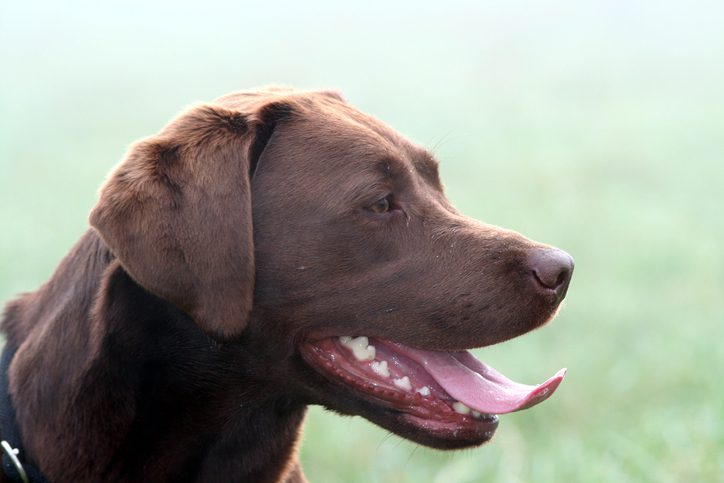Why Does My Dog’s Breath Smell So Bad in Canton, GA?
As a dog owner, you’ve probably smelled your dog’s breath more than once, for better or worse. Although canine breath typically doesn’t exactly smell good to a human, there are some situations in which your dog’s breath may be especially foul.
In the article below, we’ll walk you through several situations that may contribute to severely bad breath in dogs. With the help of this guide, you’ll get a better idea of what to expect from your dog’s breath and what it may mean if they are dealing with very bad breath, too.

Eating Something Wrong
One of the most common and least concerning causes of bad breath in dogs is simply eating something they shouldn’t. Dogs are prone to finding random objects and trying to eat them or digging old food out of the garbage and eating that instead.
This cause of bad breath isn’t too concerning, but it is important to try to figure out what your dog has eaten. This way, if it is something dangerous, you can go ahead and take them to the veterinarian anyway. And if it isn’t dangerous, but just smelly, you know you have nothing to worry about.
Low Quality Food
If you have been feeding your dog a lower quality food blend from a low-cost brand, you may need to try upgrading. Lower-quality food may cause bad breath in dogs and may contribute to poor dental health and hygiene, too.
Additionally, dogs who eat only wet food may have worse breath than those who eat dry as well. Dry food helps scrape plaque and tartar off the teeth and encourages better dental health for your pet, so consider switching to all dry or mixing the two for best results.
Not Enough Chewing
If your dog doesn’t have enough chew toys to play with, they may have worse breath. Chewing on a variety of textures and materials can help dogs remove plaque from their teeth and keep their mouths healthier, too. Natural chews like bones and antlers are best, but dogs who are not aggressive chewers or who already have bad teeth may need softer options instead.
Be sure to always supervise your dog when they are playing with chew toys. This way, they will not risk breaking off a piece and getting it lodged in their airway and won’t risk swallowing a piece of a toy either.
Dental Infection
Dental infection is a common cause of foul breath in dogs, especially when that bad breath lasts for more than a few days. If you don’t keep up with your dog’s dental health needs and you don’t regularly brush their teeth, they may be at a greater risk of a dental infection.
Your vet will work with you to choose the best course of action when dealing with a dental infection in your dog. By following your vet’s guidance, you can help your dog recover quickly and ensure better dental health and hygiene moving forward, too.
Tooth Decay
Tooth decay may cause bad breath in dogs as well. You may be able to see your dog’s decaying tooth if they will let you look in their mouth, as these teeth typically look very brown or even black in appearance. Even if you can’t see it, however, there is a risk that tooth decay could be causing your pet’s breath issues.
Your veterinarian can tell you for sure if your dog has a decaying tooth. If so, it will likely need to be removed. Your vet can also help you choose whether your dog should have the tooth removed.
Diabetes
Yes, although it may sound strange, it is possible for diabetes to contribute to bad breath in dogs too. If your dog’s breath has a sickeningly sweet smell, diabetes could be the cause of this symptom.
Dogs who are obese and have been for a long time are at the greatest risk of diabetes. Talk to your vet if you suspect your dog could have diabetes, as this condition can only be diagnosed with bloodwork.
Kidney Disease
Bad breath can also be a sign of kidney disease. Poor kidney function can result in the buildup of toxins in the bloodstream, as the kidneys are no longer able to filter out the toxins. This can lead to bad breath. Dogs often exhibit bad breath when they are at an advanced stage of kidney failure.
Early signs of kidney failure may include increased thirst and urination. Contact your veterinarian as soon as possible if your dog shows any of these signs.
Mass/Tumor in the Mouth
Yet another potential cause of bad breath in dogs is the presence of an oral mass or tumor in the mouth. Tumors in the mouth may contain dead tissue, which can give off a terrible rotting odor. And where there is dead tissue, there is sure to be bacteria, which will only exacerbate the odor, and your pet’s condition.
Your Dog’s Bad Breath Can Be Solved
Based on this information, you can easily see why bad breath should be examined as quickly as possible in most dogs. If you don’t know the cause of the bad breath—such as times when your dog eats something they find in the back yard—then it’s important to try to figure out the underlying cause of this symptom.
From there, you can either make changes to your dog’s lifestyle or talk with your Riverstone Animal Hospital vet by calling (770) 479-7141 or booking an appointment online. With the right treatment or management option in mind, you can help your dog recover from bad breath and its underlying cause as well.
